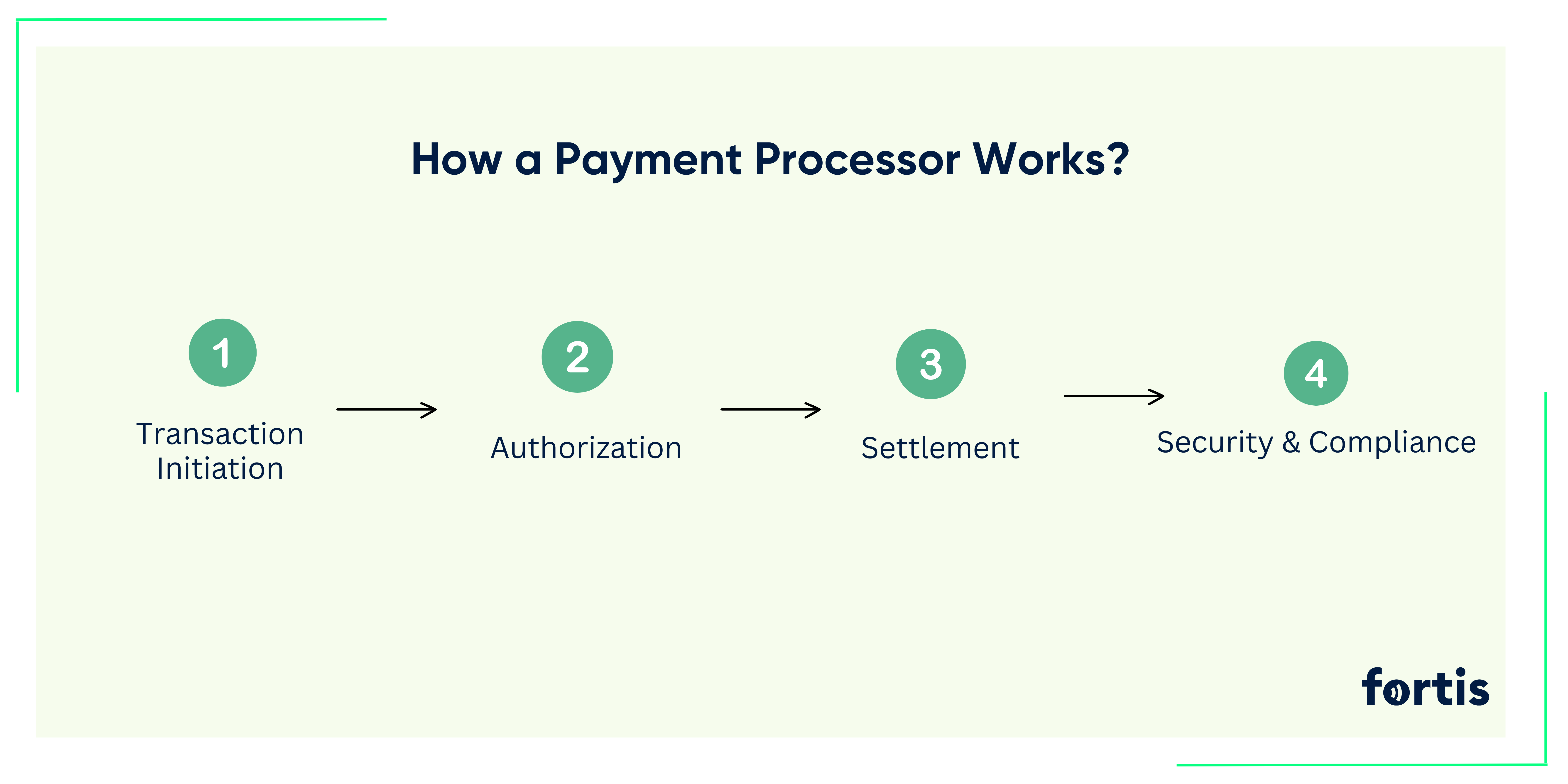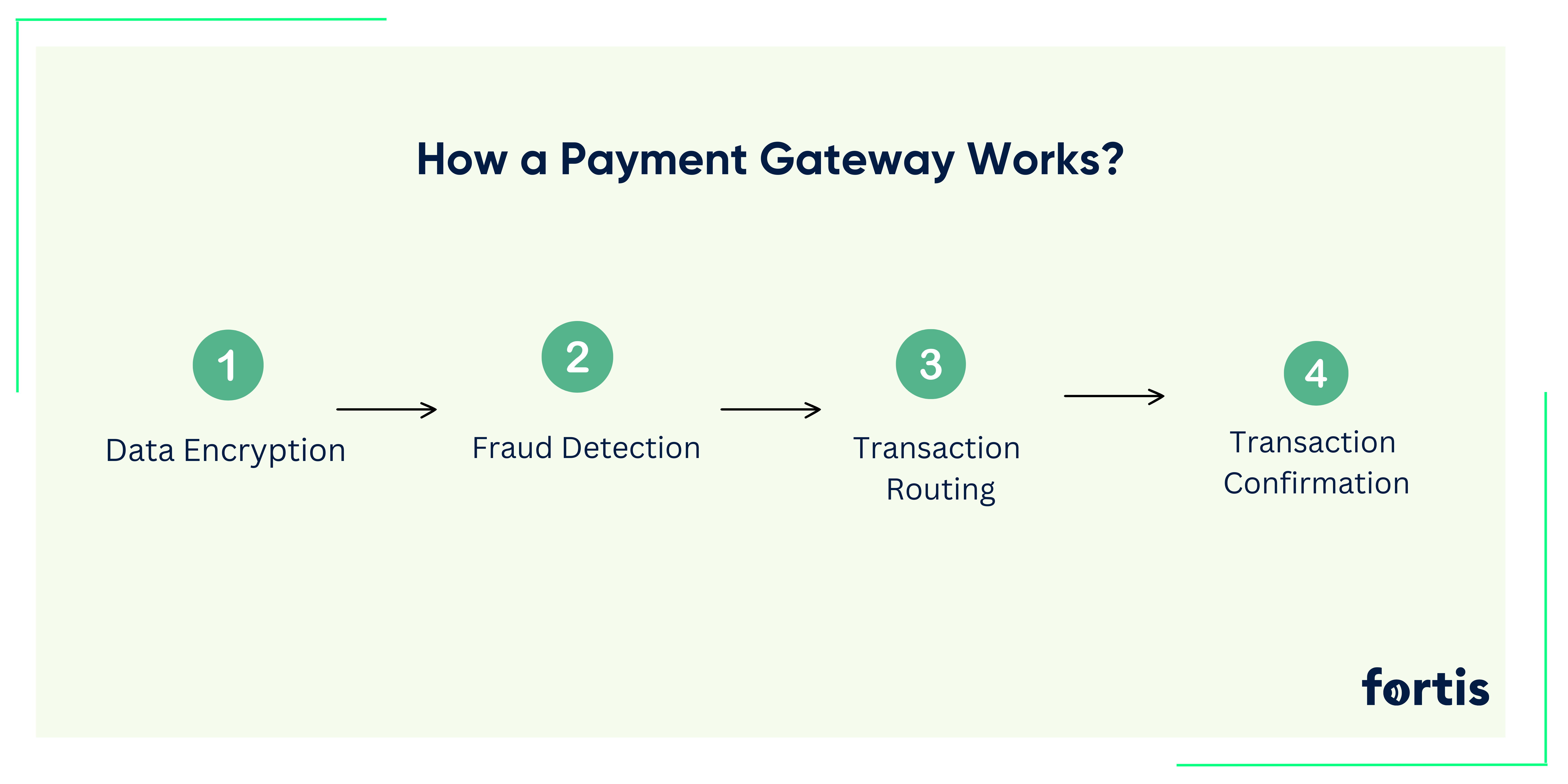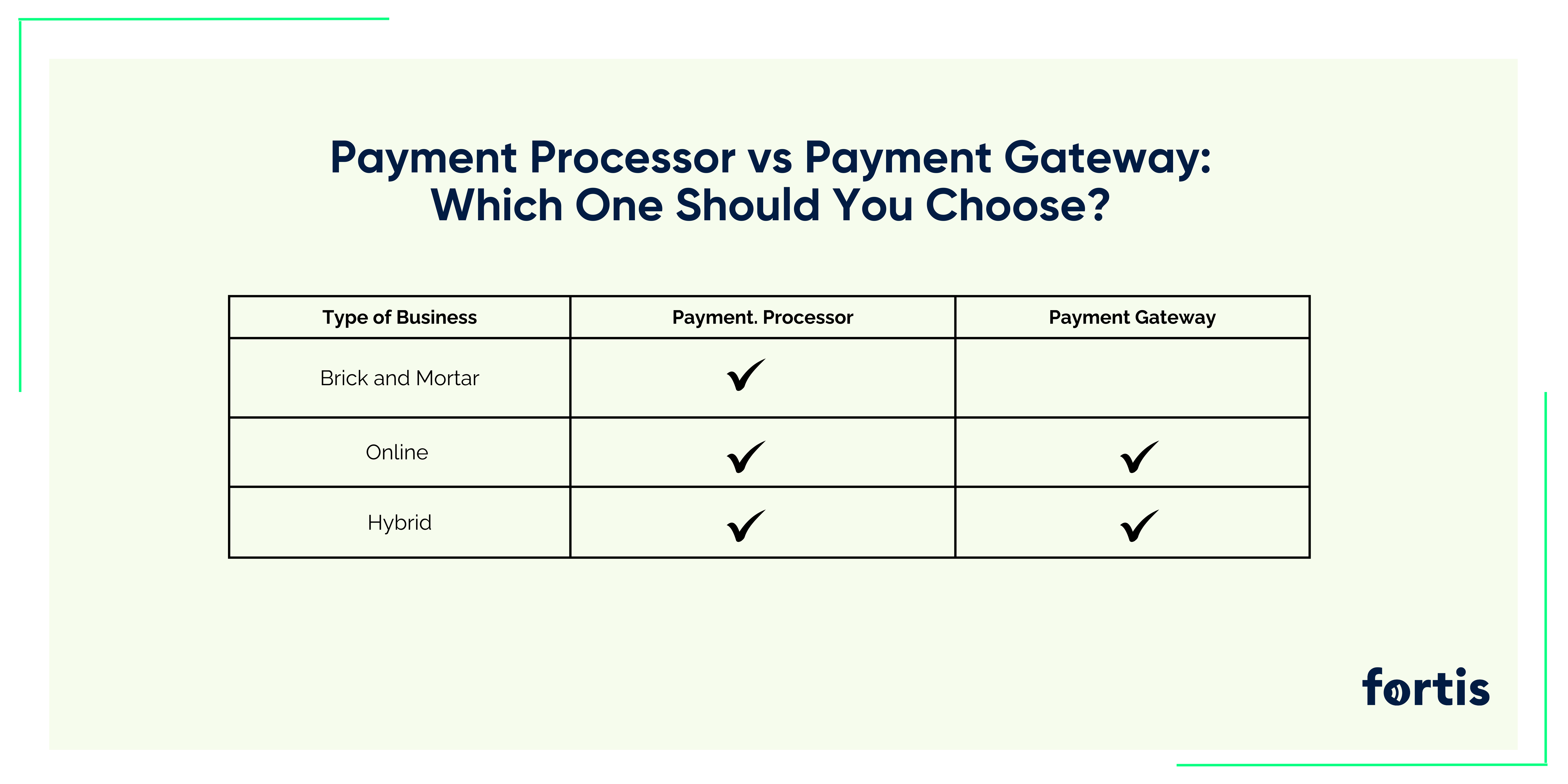Table of Contents
We cannot overstate the importance of having a robust and seamless payment system in place that allows your customers to pay without any hassle. However, to ensure that your payment works perfectly, you need to understand how different components such as payment processor vs payment gateway. Do you know the difference between the two?
The terms can be confusing, but both have distinct roles to play. In this guide, we will understand the difference between the two, how they pertain to your business, and the crucial role they play in keeping your customer happily on their way to completing the checkout process.
By the end, you'll know how to optimize your payment system, so your customers don't face any troubles when transacting with your business.
1. What is a Payment Processor?
A payment processor is crucial for any transaction. It manages the movement of money between accounts during a the purchase process. Its main role is to authorizes a payment and ensure there are enough funds to settle a transaction.
2. How Does a Payment Processor Work?

- Transaction Initiation: When a customer makes a purchase, either online or in-person, their payment information is collected (typically through a point-of-sale system or a website checkout form).
- Authorization: The payment processor checks with the customer’s bank or credit card network to verify that the card is valid and that there are enough funds available for the transaction.
- Settlement: If the transaction is approved, the processor moves the funds from the customer’s bank account to the merchant account (your business account), completing the transaction.
- Security & Compliance: Payment processors must adhere to security standards such as PCI-DSS (Payment Card Industry Data Security Standard), which ensures that your business and your customers are protected from fraud.
3. What is a Payment Gateway?
A payment gateway plays an equally important role in a payment process, the only difference is that it is involved at a different stage of a payment process. In simple terms, you can say that a payment gateway comes before a payment processor in a transaction.
The payment gateway corresponds between your website and the payment processor to ensure that any sensitive payment data remains encrypted and secure as it is being transferred during the authorization process.
4. How Does a Payment Gateway Work?

- Data Encryption: When a customer submits their payment information on your website, the gateway encrypts that information to protect it from potential hackers.
- Fraud Detection: Before sending the payment data to the processor, the gateway performs basic fraud detection checks to ensure the payment request is legitimate.
- Transaction Routing: The gateway routes the encrypted payment data to the payment processor for authorization and settlement.
- Transaction Confirmation: Once the payment processor completes its part, the gateway sends a confirmation message to your website, notifying you (and the customer) that the payment has been successfully processed.
5. The Difference Between a Payment Processor and a Payment Gateway
During a transaction, the successful transfer of funds and the security of personal data are of the utmost importance to your business’ successful operation and its long-term reputation with your customers. As we have seen, both payment processors and payment gateways are essential. The payment processor focuses on moving funds between accounts, while the payment gateway focuses on securely transmitting payment data.
Let’s look in more depth at their key differences:
FeaturePayment ProcessorPayment GatewayMain FunctionTransmits funds between the customer’s bank and your businessTransfers payment data between your website and processorHandlesAuthorization, settlement, and fund transferData encryption, fraud detection, and customer verificationSecurity RoleProvides fraud protection and compliance with PCI standardsEncrypts customer data and ensures secure data transmissionUse CasesUsed for both in-store and online paymentsMostly used for online or e-commerce transactionsExamplesStripe, Adyen, Square, FortisPayPal, Checkout.com, Authorize.net
Let’s break down the differences between a payment processor and a payment gateway in more detail, so you know how to successfully set up the payment process for your business.
1. Main Function
The payment processor’s role is to facilitate the actual transfer of funds between banks, whereas the payment gateway’s primary role is to securely transmit payment information from your website to the processor. Think of the processor as the logistics team, moving money from point A to point B, while the gateway is like the armored vehicle that ensures sensitive information gets there safely.
2. Handles
Payment processors deal with transaction approval, settlement, and ensuring the funds reach your account. Payment gateways handle encryption and routing of payment information safely to the processor, especially for online payments.
3. Security Role
Both components provide security features, but they focus on different aspects. Payment processors ensure compliance with PCI-DSS and often include tools for fraud detection, while gateways are more focused on data encryption and preventing cyber-attacks during the data transmission process.
4. Use Cases
Payment processors are necessary for any type of payment—whether it’s made in-store with a card reader or online. Gateways, however, are specifically needed for online or e-commerce transactions where card-not-present payments are involved.
6. How Payment Processors and Payment Gateways Work Together
Payment processors and payment gateways aren’t mutually exclusive. In fact, they usually work hand-in-hand, particularly in e-commerce setups. Here’s a quick example of how they work together:
- Customer Purchase: A customer adds items to their cart on your website and proceeds to checkout.
- Payment Gateway Role: The gateway encrypts the customer’s card details and securely sends them to the payment processor.
- Payment Processor Role: The processor contacts the customer’s bank or card network to authorize the transaction and settle the funds into your business account.
- Final Steps: The payment gateway notifies your website that the transaction is complete, allowing you to confirm the sale with your customer.
For in-person payments (e.g., through a POS system), the payment gateway may not be necessary, but it is essential for online sales where card-not-present transactions occur.
7. Payment Processor vs Payment Gateway: Which One Should You Choose?

The decision between a payment processor vs payment gateway, or both will largely depend on your business model.
Brick-and-Mortar Stores
If you run a physical store and primarily accept payments in person, you’ll need a payment processor to handle the card transactions made via your POS system. Since no sensitive card data is transmitted online, a payment gateway may not be necessary. However, payment gateways can open up other avenues for sales beyond cards or cash, like mobile payments or payments through QR code..
E-Commerce Stores
If your business operates entirely online or if you sell products through an e-commerce platform, you’ll need both a payment processor and a payment gateway. The payment gateway ensures secure transmission of your customer’s card details while the processor completes the transaction and transfers the funds to your account.
Hybrid Businesses
You'll likely need both components if your business has a physical presence and an online store. A payment processor will handle in-store payments, while you will require a payment gateway for online transactions to ensure a secure and seamless omnichannel experience.
8. How to Choose the Right Solution for Your Business
When choosing between a payment processor and a payment gateway (or both), there are several factors to consider:
- Transaction Volume: If you handle a high volume of transactions online, you’ll need both a reliable payment processor and a secure gateway.
- Security Needs: For e-commerce businesses, a secure payment gateway is essential to protect your customer’s payment data and build trust in your brand.
- Integration Options: Consider how easily your chosen payment processor and gateway can integrate with your existing systems, whether you’re running a POS in-store or an e-commerce website.
- Cost: Each provider will have different fee structures, including transaction fees and setup costs, so compare these before making your decision.
Unlock Seamless Payments for Your Business
As a small business owner, understanding the difference between payment processors vs payment gateways is crucial for setting up an efficient and secure payment system. Whether you run a brick-and-mortar store, an e-commerce business, or both, you’ll likely need one or both of these components to facilitate seamless transactions.
While a payment processor handles the financial side of transactions, the payment gateway ensures that your customers’ sensitive payment data is securely transmitted. Together, they form the backbone of modern payment systems, making it easier for your business to accept payments, maintain security, and offer a great customer experience.
Need guidance on choosing the best payment system for your business? Our team at Fortis is here to help! Reach out to our team of experts today to explore how we can help you set up a secure and efficient payment process tailored to exactly what your business needs.




.svg)






.png)





.png)

.png)
.png)



